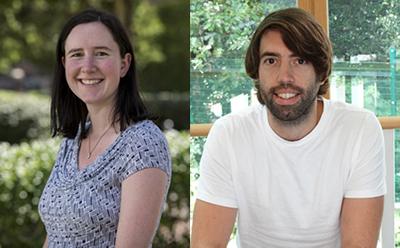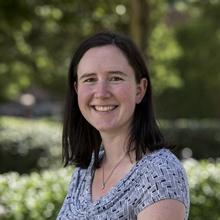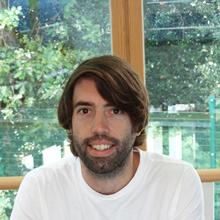Two Southampton researchers selected as ‘Future Leaders’

Two researchers from the University of Southampton have each been awarded a prestigious fellowship.
Dr Matt Ryan and Dr Christina Vanderwel will spend the next four years tackling big contemporary societal issues through their UK Research and Innovation Future Leader Fellowships (FLFs).
The UKRI scheme supports talented researchers who will help ensure that UK research and innovation continues to be world class.
Dr Ryan’s project, Rebooting Democracy, will fuse politics with machine learning to address polarisation and disengagement with politics, while Dr Vanderwel’s research will investigate wind patterns around buildings and how this affects air quality in cities.
The two fellowships are among only 78 to be awarded across the country.
Novel laboratory techniques will be used in Dr Vanderwel’s project. She will simulate wind patterns and air pollution in urban areas to improve understanding of how buildings impact air quality. The project has been awarded £943,000 by UKRI.
Dr Vanderwel, Lecturer and Research Fellow in the Aerodynamics and Flight Mechanics Research Group, will print 3D scale models of suburban and urban landscapes, then inject dye into a water tunnel to observe how pollution spreads.
She explained: “We are not doing our experiments in the atmosphere because that’s too big. We will do most experiments in the eight-metre water tunnel. The water flow will be set up so that it’s dynamically similar to the wind, so the patterns the dye makes are similar to what it would make in the air. Through this, we will be able to answer questions around the impact of pollution from a ship in the dock across the city, or what happens to air quality if you put a high rise building in the middle of a suburban area.”
Dr Vanderwel’s research will inform computer models that are used to determine the potential of buildings creating pollution hotspots.
Dr Ryan, Lecturer in Governance and Public Policy, has been awarded £1.197 million from UKRI for his project. He explained: “Democracy is in trouble. Most people agree that democracy is a good thing, but there are issues with how it works in practice including declining trust in government and political parties, distorted digital communications, and rising polarisation and extremism in politics.
“Brexit is a symptom of this – the discourse it’s created is much more polarised than before. There are many other examples in everyday life – issues such as climate change or intergenerational fairness create polarisation.”
Earlier this year, Dr Sarah Lewthwaite won a FLF in the scheme’s first round for her research into digital accessibility education.

